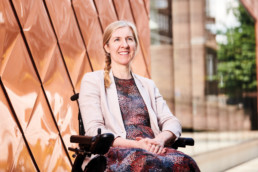The use of intermediaries during police interviews with vulnerable witnesses, such as children, may increase significantly the recall of correct details, according to a new study from City, University of London and the University of Winchester.
The academics found that, with the assistance of a Registered Intermediary (communication specialists who facilitate vulnerable witnesses to give evidence during police investigations and at trial), typically developing primary school age children mentioned over 60 per cent more correct details compared to comparable children who received a police interview in line with current best practice, without any intervention. The study is the first to measure the positive impact of intermediaries on recall levels in child witnesses.

The academics also looked at primary school age children with autism but found that intermediaries did not increase their volume of recall. Therefore, more research is needed to find out other important ways intermediaries may help this vulnerable group. The paper is published in the Journal of Autism and Developmental Disorders.
Professor Lucy Henry, Professor of Speech and Language in the Division of Language and Communication Science at City and lead author of the study, said: “The current study offers the first empirical evidence to support the use of Registered Intermediaries in 6- to 11-year-old typically developing children, as they produced highly significant increases in correct recall without compromising the children’s accuracy. Although intermediaries did not improve the volume of recall for children with autism, they are likely to have other helpful effects in real cases, reducing the stress and trauma associated with giving evidence.
“As a result, our new findings strengthen the case for using intermediaries for younger children in the justice system and further research is needed to explore the wider aspects of the intermediary role in more depth, particularly for children with autism.”